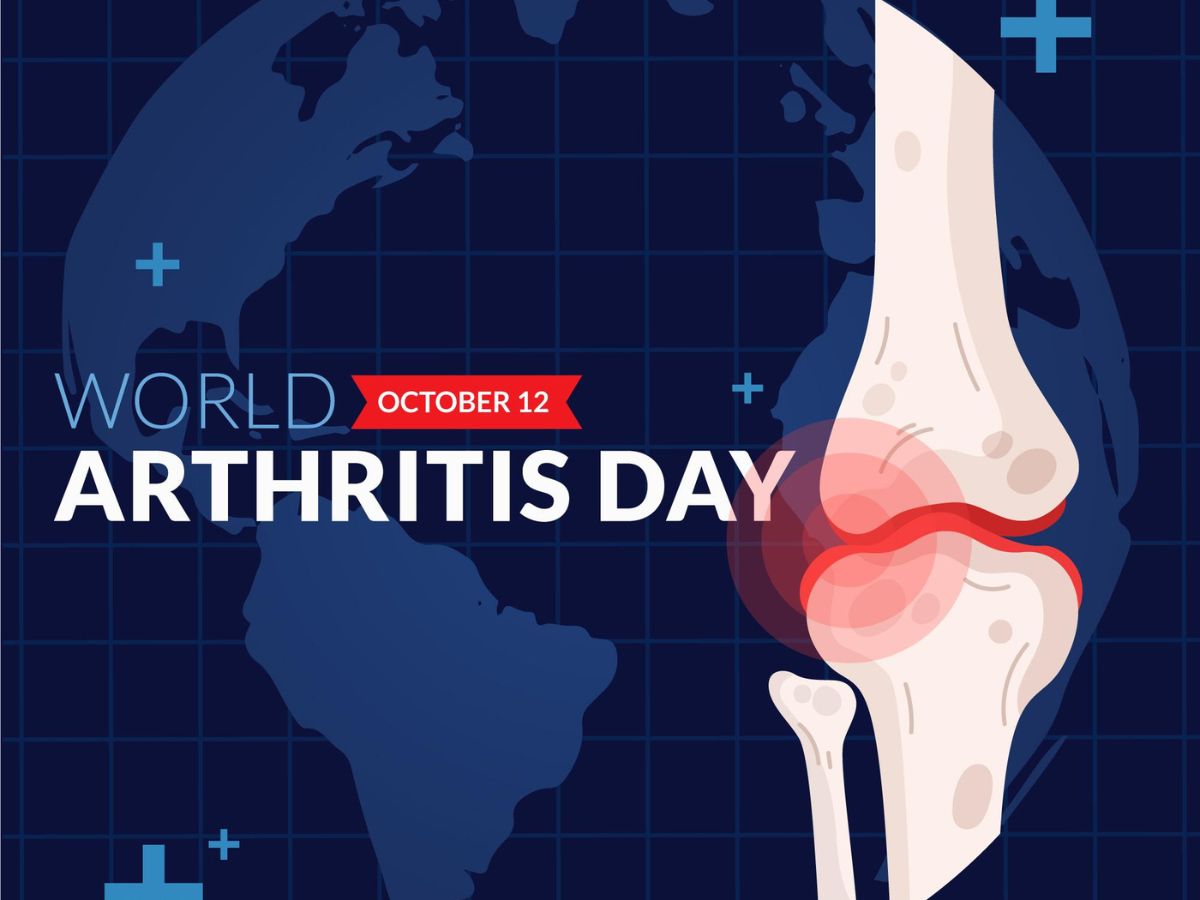
Living with Arthritis – Coping Mechanisms for Daily Life
Arthritis is a condition that affects millions of people worldwide, causing pain, stiffness, and inflammation in the joints. It can impact daily activities, mobility, and overall quality of life. On World Arthritis Day, observed every year on October 12th, the goal is to raise awareness of this common condition and empower individuals with arthritis by sharing practical coping mechanisms that can help them manage their symptoms and maintain an active, fulfilling life. At Sunshine Bone and Joint Institute (SBJI), we understand the challenges that arthritis brings, and we are dedicated to providing comprehensive care to help patients manage their condition effectively.-
Exercise: Movement is Medicine
One of the most effective ways to manage arthritis pain is through regular, low-impact exercise. While it may seem counterintuitive to move when you are in pain, physical activity helps strengthen the muscles around the joints, improve flexibility, and reduce stiffness. Some of the best exercises for people with arthritis include:
- Walking: A simple, low-impact activity that keeps joints moving without placing too much strain on them.
- Swimming and Aquatic Exercises: Water-based exercises reduce pressure on the joints while allowing for full range of motion.
- Yoga and Stretching: Gentle stretching and yoga poses can help improve joint flexibility and reduce tension in the muscles.
It’s important to consult with your healthcare provider or a physical therapist to design an exercise plan tailored to your specific needs and limitations. Regular movement not only helps manage arthritis symptoms but also promotes overall health and well-being. - Healthy Weight Management
Carrying extra weight places additional stress on weight-bearing joints, such as the knees, hips, and spine. For individuals with arthritis, maintaining a healthy weight is crucial for reducing joint pain and slowing down the progression of the disease. Even modest weight loss can significantly alleviate the strain on your joints, leading to improved mobility and reduced pain. A balanced diet rich in anti-inflammatory foods, such as fruits, vegetables, whole grains, and healthy fats (like omega-3 fatty acids from fish), can help manage arthritis symptoms. Additionally, limiting processed foods, sugar, and excessive red meat can reduce inflammation in the body. - Pain Management Techniques
Managing pain is one of the most challenging aspects of living with arthritis. Fortunately, there are several pain management strategies that can provide relief:- Heat and Cold Therapy: Applying heat to stiff joints can help relax muscles and ease pain, while cold therapy can reduce swelling and numb acute pain.
- Topical Creams and Medications: Over-the-counter topical creams, as well as prescribed medications, can help reduce pain and inflammation. Nonsteroidal anti-inflammatory drugs (NSAIDs) and corticosteroids are commonly used to manage arthritis-related discomfort.
- Assistive Devices: Using assistive devices, such as braces, canes, or specialised footwear, can reduce stress on affected joints and improve mobility.
- Joint Protection Techniques
Protecting your joints from unnecessary strain is crucial when living with arthritis. Here are a few joint protection strategies:
- Use Proper Posture: Maintaining good posture when sitting, standing, or lifting helps reduce strain on your joints.
- Avoid Repetitive Movements: Repetitive motions can increase wear and tear on your joints. If your daily tasks involve repetitive actions, try to break them up with periods of rest.
- Use Ergonomic Tools: Investing in ergonomic tools and devices, such as jar openers, reachers, or larger-grip utensils, can reduce the effort required to complete daily tasks.
Learning how to perform tasks in ways that minimise joint strain can help preserve joint function and reduce pain. - Emotional and Mental Health Support
Living with arthritis can take a toll on mental and emotional well-being. The chronic nature of the pain, combined with limitations on daily activities, can lead to feelings of frustration, anxiety, or even depression. It’s important to seek emotional support through friends, family, or professional counselling. Additionally, relaxation techniques like mindfulness, meditation, and deep breathing can help manage stress, which in turn can reduce arthritis symptoms. A positive outlook and proactive approach to managing arthritis can greatly improve quality of life.
World Arthritis Day is an opportunity to recognize the challenges that arthritis patients face and to encourage the adoption of coping mechanisms that can improve daily life. At Sunshine Bone and Joint Institute, we are dedicated to helping arthritis patients manage their condition through a holistic approach that includes physical therapy, pain management, joint care, and emotional support. With the right strategies and a strong support system, living with arthritis doesn’t have to mean giving up the activities you love. Instead, it’s about adapting and finding new ways to maintain an active, fulfilling life.
Frequently Asked Questions
Low-impact exercises like walking, swimming, and yoga are ideal for people with arthritis. These activities help improve flexibility, strengthen the muscles around the joints, and reduce stiffness without placing too much strain on the affected joints.
Excess weight adds extra pressure on weight-bearing joints like the knees, hips, and spine, which can worsen arthritis symptoms. Losing even a small amount of weight can significantly reduce joint pain and improve mobility.
Heat and cold therapy, topical creams, over-the-counter pain medications, and assistive devices like braces or canes can help reduce arthritis pain. It’s also important to consult your healthcare provider for personalised pain management strategies.
Living with chronic pain and limited mobility can lead to emotional challenges like anxiety, frustration, or depression. Seeking support from family, friends, or professional counsellors, as well as practising mindfulness or relaxation techniques, can help improve emotional well-being.
SBJI provides comprehensive arthritis care, including physical therapy, personalised pain management programs, and joint protection education. Our team of specialists works closely with patients to create tailored treatment plans that improve mobility, reduce pain, and enhance quality of life.

